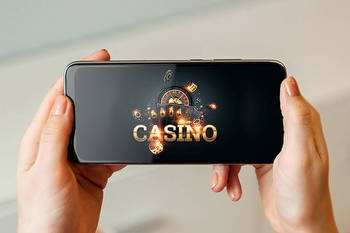How the Growth of Betting Apps Affected the Gambling Industry
Amidst debate over whether web apps are better than native apps lies one undeniable fact: mobile gaming changed the gambling industry. In the early days of online casinos, the industry struggled to find new customers.
There was a time when gambling insiders feared slot machines would soon lack people to play. But then came mobile betting apps and the iGaming sector experienced a sudden surge in demand.
At the height of COVID-19, demand for online gaming increased so much that states across the US began to legalize the industry as a way to increase revenues. In this article, we’ll delve into the role betting apps have played in elevating online gambling into a multi-billion industry.
Every Gambling Site Became Mobile Responsive
Increased demand for betting apps meant one thing for gambling sites—they had to embrace change or risk shutting down. Forward-thinking casinos and sportsbooks adopted mobile gaming early on.
By designing betting apps, a gambling site secures part of its fan base that prefers mobile to PC websites. Also, it opens room to attract new customers escaping gambling sites without mobile support.
As we stated, betting apps come in two types. There are native apps. These apps work on a specific operating device, say iOS or android and not both. Then there are web apps—they operate across multiple devices through the web.
Because web apps are easier to create and work on all devices; they’ve surpassed native apps in popularity. To be fair, play stores also contributed to the growth of web apps. They would constantly ban betting apps, which forced operators to create an alternative.
Are web apps better than native apps? Most betting apps provide the same betting markets and games. As such, it all depends on your preferences. That said, choose the best betting apps in 2022 for a delightful betting experience.
Mobile Gaming Overtook PC Gaming
It’s official—mobile gaming is bigger than PC and console gaming. One of the reasons is due to its affordable nature. Smartphones cost as little as $50. And these cheap smartphones are good enough to bet on sports or play poker.
In addition to being affordable, smartphones are incredibly convenient. You can carry your phone inside your pocket or purse comfortably. And when you get into the mood to bet online, you can do it at your convenience.
With that in mind, mobile betting apps would probably not be popular without modern technology. Advancements in mobile programming, graphics design and marketing helped spearhead mobile gaming into dominance.
Also, improved technology in mobile phone developments helped breed improved, better performing phones. The modern iPhone or android smartphone runs smoothly and supports complex games.
Software Providers Went Mobile
In the early 2000s, most online casino games could only operate on a desktop computer. What’s more, you had to download gaming software before you could bet on slots or play blackjack.
Everything changed after mobile betting came along. Online casinos began contracting software providers with mobile games. To keep up with competition, every software provider went mobile. Next, they introduced instant gaming.
For clarity, not every online casino game runs smoothly on mobile devices. Some slots designed in the 1990s and early 2000s were never updated to support smartphones.
However, a majority of casino games designed after 2010 run on smartphones smoothly. That includes live casino games like poker, baccarat, roulette and blackjack. For the uninitiated, live games allow you to bet against human opponents instead of bots.
When you think about it, betting apps helped bring more people to the gambling industry. In turn, this increased profits for gambling businesses. Statistically, the iGaming sector has been growing at a rate of over 10% every year in the past five years.
It will continue to grow at this rate up to 2027, according to experts. In 2022, online gambling is worth an estimated $90 billion. What’s more, half the world say they gamble online regularly.
Of the people who gamble online, roughly 55% of them use smartphones. Now, some of these people simply shifted from PC to smartphones. But there’s a significant portion of them who bet exclusively on mobile devices.
That is particularly true for people getting into online gambling post PASPA. After the Supreme Court legalized sports betting in 2018, states have been legalizing both sports betting and online casinos. Over 30 states have laws that support mobile betting. But fewer than 10 of them also support online casinos.
Banking on your Phone
If you want to deposit money to a betting site, there’s no need to turn on your laptop. Many casino payment providers have apps you can use to deposit between $10 and $10,000.
In fact, there are so many mobile payment apps that choosing the right provider can be daunting. People who love e-wallets have options like Google Pay, Skrill, PayPal and Apple Pay.
On the other end, you could also deposit through Discover, MasterCard and Visa. Some casinos also accept crypto, Visa gift cards and wire transfer. Choose a safe and trustworthy payment company.
Also, consider features like fees, speed and chargebacks. Top-tier payment apps have low fees and process payments instantly. What’s more, they can get you a refund in case you get scammed online.
New Laws and Rules
As we had stated earlier, betting apps didn’t exist on Play Stores for long. In 2013, Google enforced a ban on all gambling apps from its platform. Apple made a similar rule a couple of years later.
In all fairness, Google and Apple banned betting apps as a direct response to new government regulations. However, casinos and sportsbooks later found a solution. They betting web apps which didn’t have to be accessed from play stores.
Still, to be clear, governments around the world have been legislating new laws aimed at protecting mobile players. As a result, you can’t create a betting account if you’re under 18 years. Also, you might be required to prove your identity as part of the registration process.
































